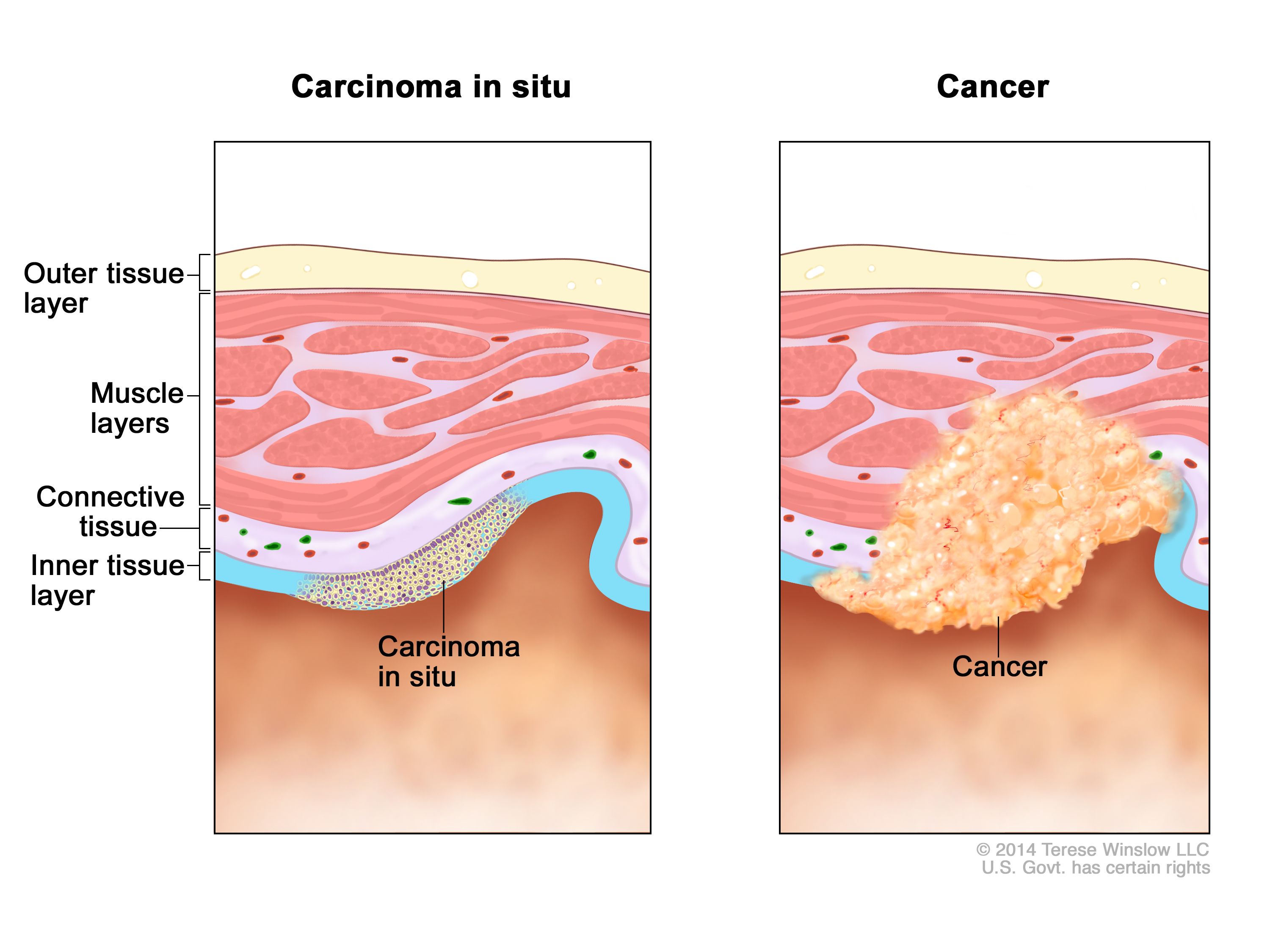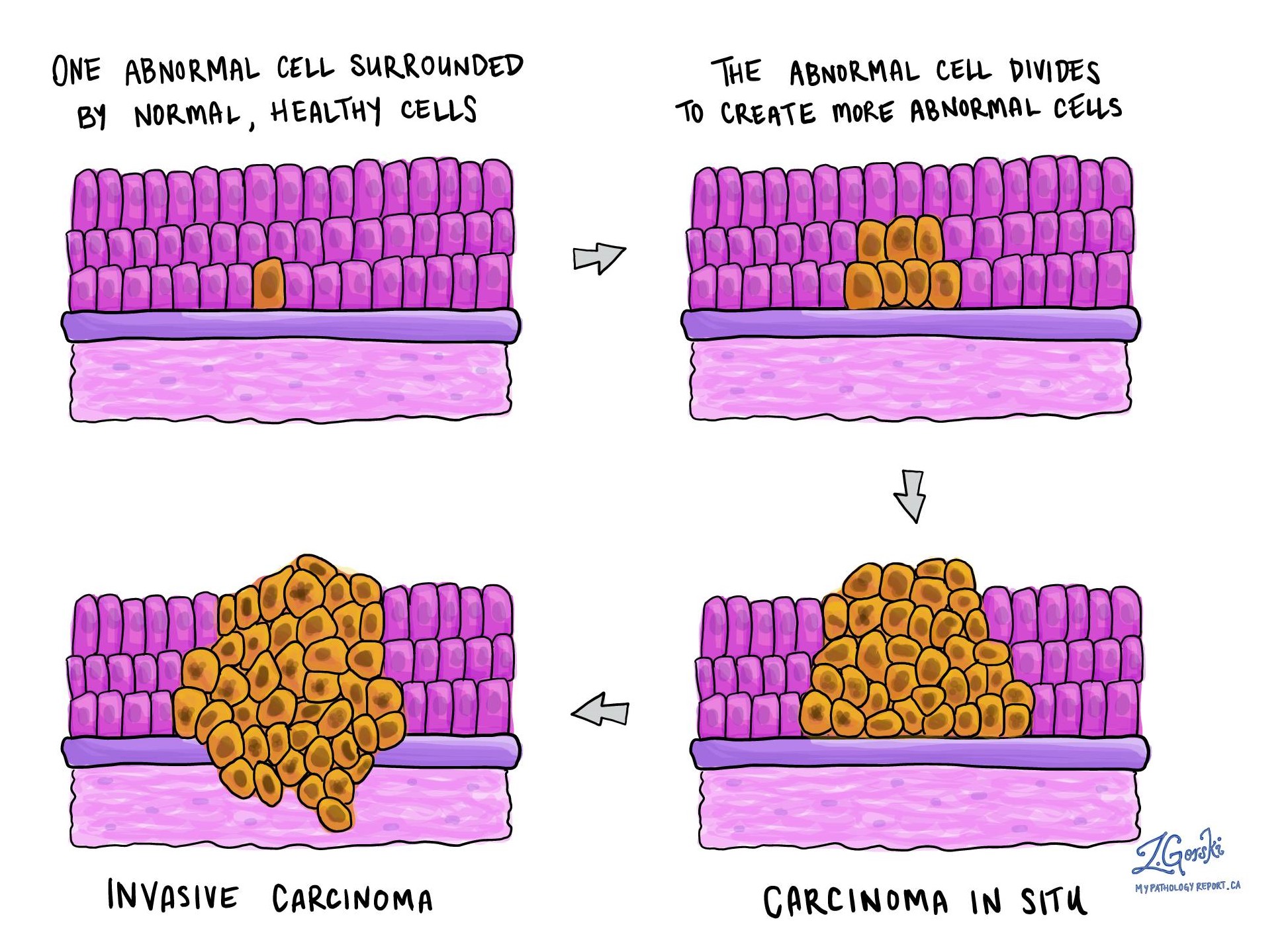Carcinoma in Situ Describes a Malignant Tumor That Is
The words in situ mean in its original place These in situ cells are not. There are 2 main types of in-situ carcinoma of the breast.

Malignant Neoplasm An Overview Sciencedirect Topics
Granular cell tumor GCT is a benign tumor arising from Schwann cells.

. Carcinoma in situ. Ad Learn About This Treatment Option For Certain Patients With Advanced Kidney Cancer. Carcinoma ____________________ in situ describes a malignant tumor in its original position that has not yet disturbed or invaded the surrounding tissues.
Still doctors usually recommend surgery to. Nearly all breast cancers are carcinomas. Carcinoma is a malignancy that develops from epithelial cells.
Code intracystic carcinoma as in situ 2 unless the histology is described as invasive intracystic carcinoma. GCT of the breast is rare and while predominantly benign it can be difficult to differentiate from breast. While it is not considered invasive this diagnosis does mean that.
Carcinoma in situ refers to a group of abnormal cells that have not spread from the location where they first formed although they may later spread into normal tissue and. It is not cancer and may not become malignant. Ductal carcinoma in-situ DCIS and lobular carcinoma in situ LCIS.
The disorder of breast cancer ductal carcinoma in situ or DCIS is cancer that begins in a milk duct and has not thrived into the rest of the breast tissue. Ductal carcinoma in situ DCIS also referred to as intraductal carcinoma is a non-invasive breast cancer characterized by a proliferation of abnormal epithelial cells confined. These early stage cancers are localized to the epithelium and have not.
C Carcinoma in situ CIS refers to preinvasive epithelial malignant tumors of glandular or squamous cell origin. Malignant transformation of the epithelial component of phyllodes tumours PT is rare and only reported in literature as sporadic cases of carcinoma associated with PTs. Squamous cell carcinoma SCC is the most common malignant tumor of the cervix comprising 70-80 of cervical malignancies.
Abbreviation for CARCINOMA IN-SITU. A group of malignant cells that have not yet spread to other parts of the body. Specifically a carcinoma is a cancer that begins in a tissue that lines the inner or outer surfaces of the body and that arises.
We describe a patient with a malignant phyllodes tumor with both lobular carcinoma in situ and liposarcomatous stromal differentiation. Carcinoma In Situ is used to describe breast cancer that has not yet spread beyond the ducts or lobes where it began. Which of the following is true of carcinoma in situ but not disease categorized as cancer.
This cancer has stayed at its site of origin in-situ CIS. A malignant tumor that occurs in epithelial tissue Carcinoma in situ A malignant tumor in its original position that has not yet disturbed or invaded the surrounding tissues Complement. They have not spread.
Cervical SCC generally invades directly into. Although lobular carcinoma in situ and adipose. The tumor cells have not invaded neighboring tissue.
Ad Learn About This Treatment Option For Certain Patients With Advanced Kidney Cancer. A tumor that is confined to the duct system ductular or lobular and does. This is a term used to describe a cancer that begins in the lining layer epithelial cells of organs like the breast.
Intraductal carcinoma is another name for ductal. KAR-sih-NOH-muh in SY-too A group of abnormal cells that remain in the place where they first formed. Carcinoma in situ refers to cancer in which abnormal cells have not spread beyond where they first formed.
This early-stage cancer is confined to the layer of tissue from which it started and has not spread to surrounding tissue or other parts of the body. Carcinoma in situ or stage 0 cancer refers to precancerous cells in a limited area.

Definition Of Carcinoma In Situ Nci Dictionary Of Cancer Terms National Cancer Institute

Carcinoma In Situ Cis Pathology Dictionary Mypathologyreport Ca
No comments for "Carcinoma in Situ Describes a Malignant Tumor That Is"
Post a Comment